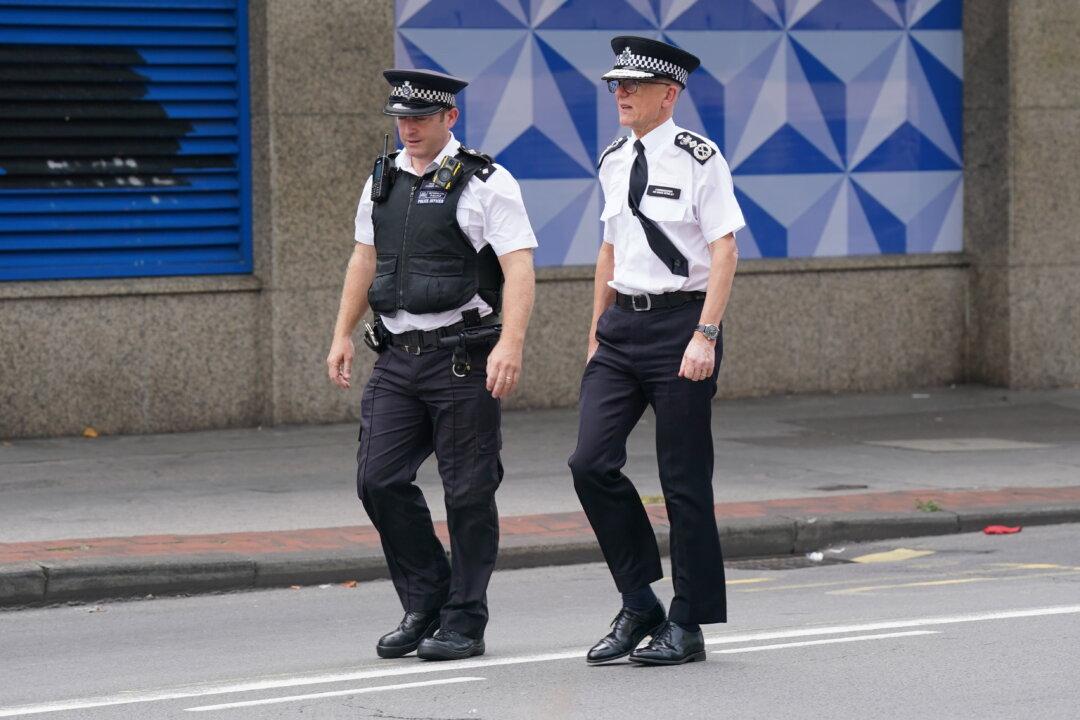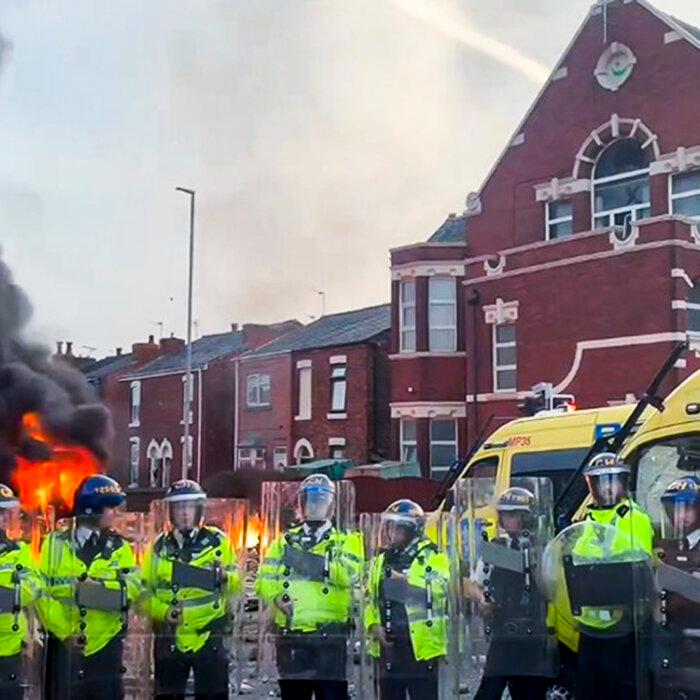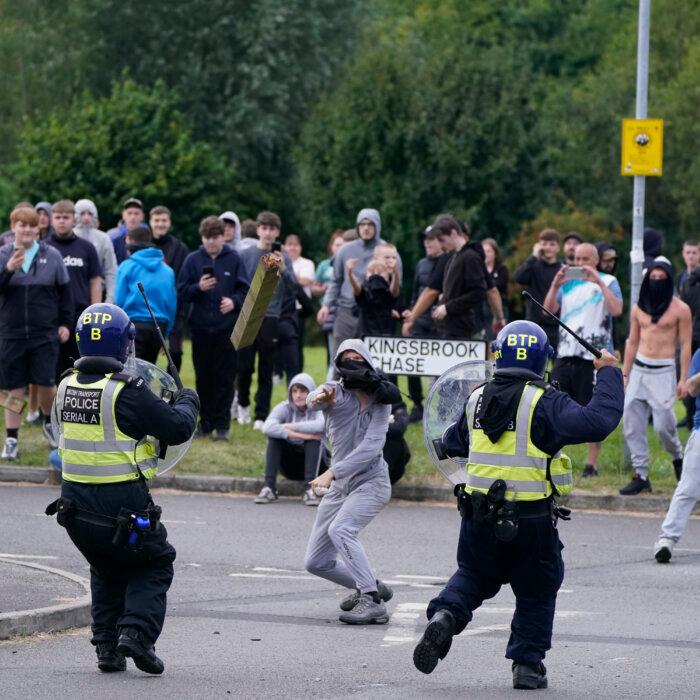After a week of unrest, the number of people attending protests and riots across the country had decreased by Wednesday, as police presence intensified.
Police forces nationwide had prepared for 100 anti-immigration protests, including in London, where the Metropolitan Police deployed over 1,300 officers. However, in most locations, disorder and rioting did not materialise. Counterprotests did take place, notably in the capital, as well as in Brighton, Bristol, Liverpool, and Sheffield.
Home Office Minister Dame Diana Johnson said that the increased number of police on the streets and recent prosecutions had acted as a deterrence.
Johnson told Sky News on Thursday, “I think that swift justice we’re seeing is also helping to make people think twice about getting involved on the streets.”
Likewise, Scotland Yard Police Chief Sir Mark Rowley told BBC Radio 4’s “Today” programme, “I think the show of force from the police and frankly, the show of unity from communities together defeated the challenges that we’ve seen.”
Riots broke out on July 30, the day after three young girls were fatally stabbed in Southport, after a false rumour was spread online that the perpetrator had been a Muslim illegal immigrant on a terror watch list who arrived in the UK on a boat.
‘Pure Antisocial Behaviour’
Scotland Yard’s Deputy Assistant Commissioner Andy Valentine said that counterprotests in Walthamstow and Finchley had passed “without major incident or disruption,” but the force did face some disruption in the city.London police made 10 arrests in Croydon after around 50 people gathered in North End Road and had “made clear their intention is to cause disruption and fuel disorder,” with those present having dragged and thrown objects down the road as well as throwing bottles at police.
However, the force said “this is not linked to protest, this appears to be pure antisocial behaviour.”
Avon and Somerset Police also said that they had made an arrest after a brick was thrown at police during a “largely peaceful” protest in Bristol.
Arrests and Court Appearances Continue
Convictions and sentencing for those involved in the protests has already begun. Three men in Liverpool were jailed after they had admitted to violent disorder, the first to be sentenced in connection with the unrest.Another four men will be sentenced at Liverpool Crown Court on Thursday for violent disorder. Three men in Plymouth will also be sentenced for the same offences.
Rowley confirmed on Thursday that more arrests had been made overnight relating to the violent disorder that took place outside of Downing Street on July 31, bringing the total number of arrests connected to the incident to 121.
Police said that of those arrested, 70 percent had previous convictions including for violence, drug offences, and weapon possession.
Sharing Posts Online Inciting Violence
Johnson told the BBC that over 400 people have been arrested so far and that she was “hoping and I know that number will increase today.”“We’ve got over 140 people charged, that number will go up as well, and we will start to see again today, more people going into court and receiving sentences,” the Home Office minister said, adding that there will be legal repercussions for those sharing posts online which incite violence.
She said, “And very importantly as well, I just want to make this point, it’s not just those physical acts on the street that we’re going to make sure people are brought to account for, but it’s also what’s happening online and that’s really important.”
“If you do stuff online we will come for you, just as much as we will come for you for what you do on the streets of our country if you’re carrying out criminal disorder and violence,” she added.







